If you are familiar with animals, especially farm animals, you will know that sometimes animals of the same species will attack or even kill one another. The same truth, unfortunately, extends to the world of ducks as well. Ducks, especially baby ducklings, are not always safe from harm when with their peers.
Will male ducks kill baby ducks? Male ducks, also known as drakes, will kill baby ducks in some situations. Male ducks may attack their own, or other, ducklings if provoked by a situation or external threat.
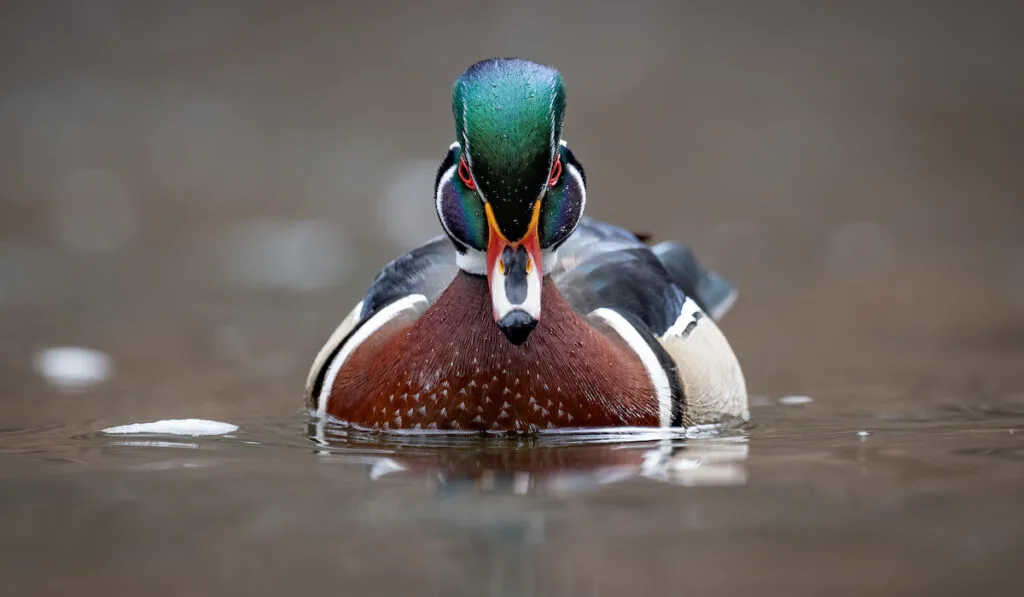
Recognizing the signs of aggression and knowing ways to prevent violent behavior in drakes can be key to keeping your baby ducks safe.
Table of Contents
What Should You Do if a Male Duck Is Being Aggressive?
Not all male ducks are aggressive, but some, unfortunately, will display clear signs of aggression. If you notice a male duck being aggressive with ducklings, you should separate them as soon as possible.
One minute could mean the difference between life and death for a baby duck that is attacked by hostile male.
A male duck can kill a duckling in a matter of seconds simply by drowning or violently shaking it.
If the mother duck hen is not around to protect her ducklings, a male duck will be free to do as he wishes. A male duck that continues to show aggression toward ducklings should no longer be allowed around the young animals.
Why Do Some Male Ducks Kill Ducklings?
Male ducks kill ducklings mainly when they feel threatened by them. A male duck’s instinct is to find a mate to produce offspring. Unfortunately, some male ducks view ducklings as a threat to this objective.
Often, ducklings can be perceived as an obstacle between a male and a potential mate. A male duck may kill the ducklings to breed the mother hen.
It is an odd equation, but on a primal level there is a reason, even if it is extremely counterintuitive. Gaining access to breed, whatever the cost, is instinctual to continuing a species.
Animals also have personalities. Some male ducks may simply kill ducklings due to their own hostile demeanor or a seemingly random dislike for the young animals.
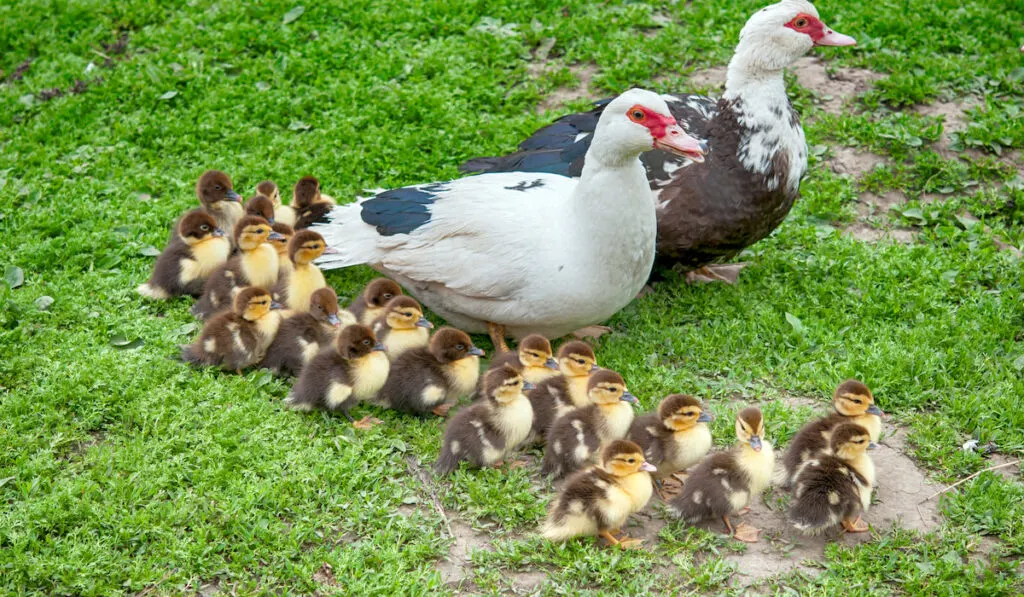
Signs of Aggressive Male Duck Behavior
You may never know the exact reason why a male duck suddenly becomes aggressive toward ducklings. You can, however, spot signs of an aggressive duck, hopefully in plenty of time to protect any nearby baby ducks.
1. He pushes out eggs from the nest.
Some aggressive drakes will display signs of aggression before the eggs even hatch. Duck owners have reported seeing male ducks rooting out eggs from the nest, causing them to break or not hatch properly.
2. He attacks you and other ducks for no reason.
Ducks naturally will have spats over food or mates, but they should not be attacking humans or other ducks on a regular basis. This can be an indication that the drake may be violent with his own or other ducklings.
3. He bites or grabs at ducklings.
A surefire sign of aggressive behavior in a male duck is when he clearly bites or grabs ducklings. This is the most blatant form of aggression and can lead to the ducklings being injured if you do not separate them from the drake.
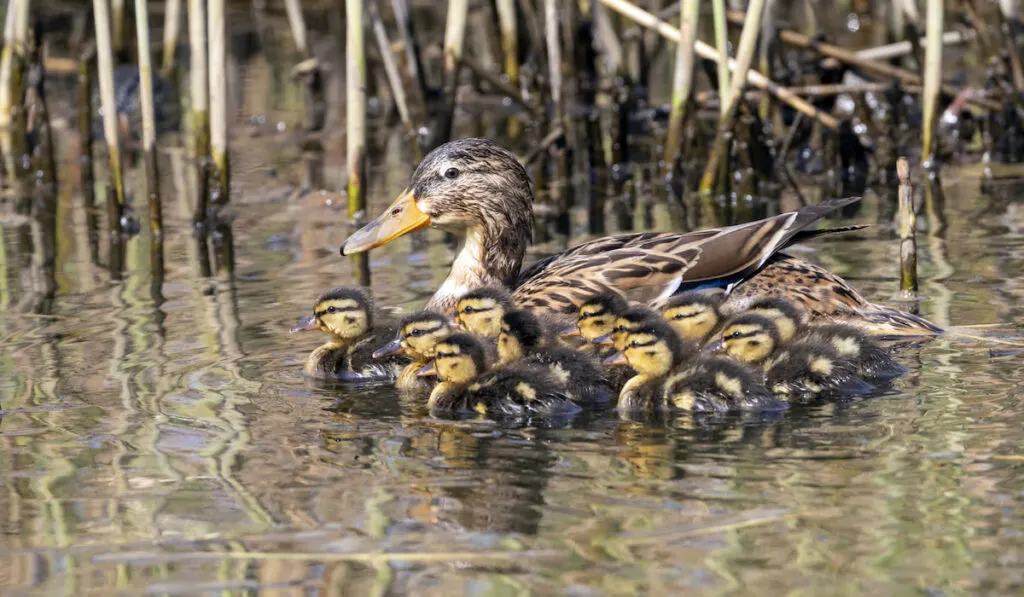
The Role of Drakes with Eggs and Ducklings
Male ducks play little to no role when it comes to hatching or caring for ducklings. Drakes can be helpful at times after ducklings hatch, but they are typically uninvolved in their care and their help is not required.
Drakes will actively protect their female mate from predators, subsequently protecting their ducklings if they happen to be nearby. If the hen is not around, the drake will concern himself with his own safety and not go above and beyond to protect ducklings.
Will Male Ducks Kill Other Brood Ducklings?
Drakes will sometimes kill the baby ducks of hens that they did not breed with.
If a male duck stumbles upon a female duck with ducklings that do not belong to him, he may try to attack and even kill the ducklings. This is caused by a survival instinct, as the male wants the female to mate with him instead of other males.
A male duck of one brood will attack the hens and ducklings of another brood if they get too close. This may or may not happen in your own backyard duck setup.
Some duck broods can live in harmony with other broods nearby while others cannot. It is important not to assume that all your ducks will continue to be friendly to one another once a group of ducklings has hatched.
Do Male Ducks Sit on Eggs?
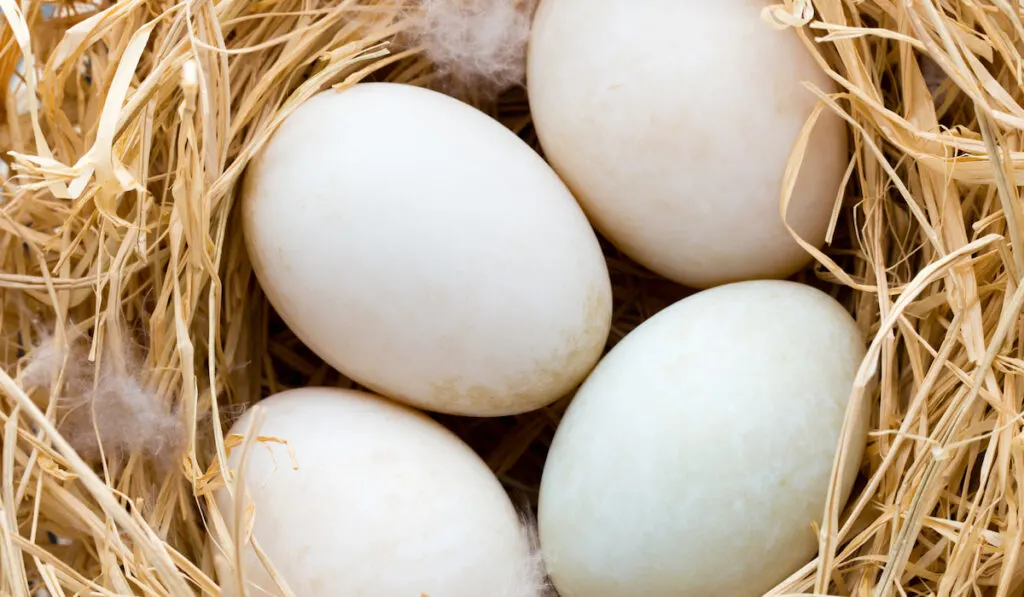
For the most part, male ducks do not sit on eggs. It is not in their nature to incubate and hatch eggs like a hen does. Ducks are not known to share any egg sitting responsibility between mates.
Instead, a male duck that has mated with a hen will often stand guard nearby while she alone sits on the eggs.
Very rarely, if ever, will you see a male duck sitting on eggs. If you do, he is probably just sitting close to his current mate, not necessarily meaning to sit on the eggs.
Pay close attention if you see your male ducks sitting on or cozying up to eggs. The drake may be trying to sneakily knock the eggs out of the nest!
Do Male Ducks Help Care for Ducklings?
Male ducks do not tend to take care of ducklings. A drake may continue to stay close to the hen and the ducklings as a means of protection for his mate.
Male ducks will often protect their brood from other ducks or animals, but they do not take care of ducklings the same way that a hen does. Occasionally, you will find a male duck that appears to care for ducklings, but this is rarely the case, especially in the wild.
The Role of Hens with Ducklings (and Drakes)
Does a Hen Need a Drake to Help Take Care of Ducklings?
A hen needs a drake to have ducklings, but she does not need a drake to help her take care of the babies. Extra help is always useful, especially if a male duck serves to protect the hen and ducklings, but it is not necessary.
The brood can survive if the male is separated from the group. If a drake becomes aggressive with a hen or her ducklings, separating the drake is more helpful to the hen (and the ducklings’ survival) than keeping him with the brood.
How Do Hens Take Care of Their Ducklings?
Hens take care of their ducklings by keeping them warm and safe from the elements. Ducklings are not completely feathered until they are about 9 weeks old. They will need their mother to help keep them warm and out of cold weather until their feathers come in completely.
Hens teach their ducklings how to swim, find food, and find water. In the wild, migratory hens will also teach their ducklings how to fly long distances and migrate.
Domesticated and wild hens protect their ducklings from aggressive males, other hens, and predators that want to eat them. (source)
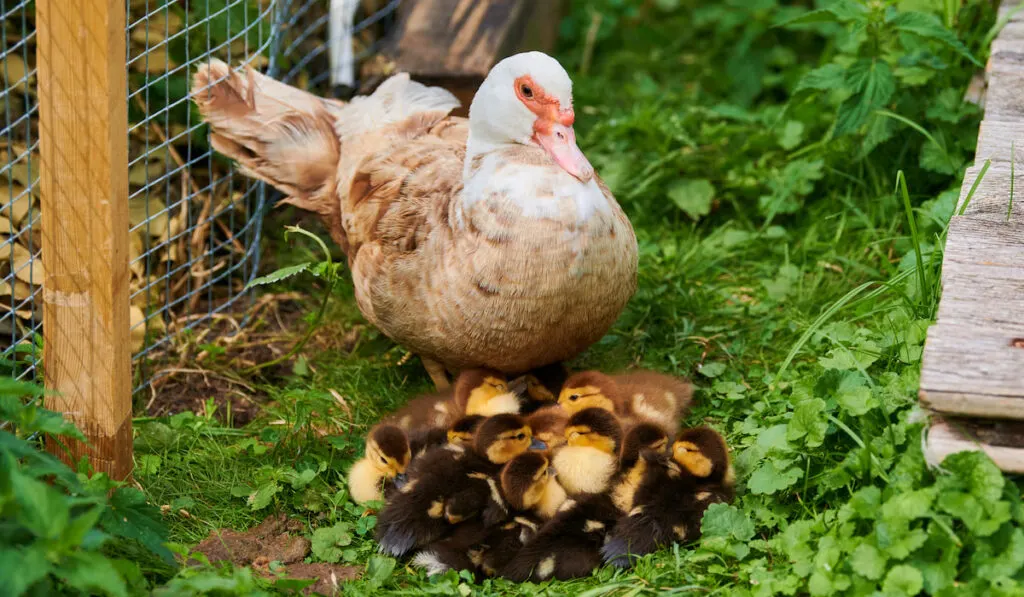
How Long Do Ducklings Stay With Their Mom?
Ducklings will often stay extra close to their mother for at least their first 45 days to 60 days after hatching. Ducklings need their mothers while they are young to keep them safe from predators and the elements.
Young ducks may continue to stay close by, but many will venture away from their mother. By 4 or 5 months old, they will be completely on their own, and by the age of 1 they will begin producing their own duckling broods. (source)
How to Protect Ducklings From Aggressive Drakes
- Separate aggressive ducks from ducklings, whether male or female, immediately.
- Pay close attention to any ducks acting strangely around ducklings.
- Keep different broods separated to deter fighting.
- Always keep the hen with her own ducklings.
- Never introduce a male duck to ducklings from another brood.
- Consider separating males from all new hatchlings for at least 3 to 4 weeks.
- Section off the duck pen to separate the male but keep him within view.
Final Thoughts
Raisings ducklings can become nerve-wracking if you have an aggressive male duck. It is important to know that drakes can be a danger to ducklings if they feel threatened. Be sure to observe how your ducks are interacting, especially if broods mix together in your duck pens or when new ducklings hatch. Always be cautious of male ducks, especially if this is their first experience around ducklings. It is always better to be safe than sorry.
